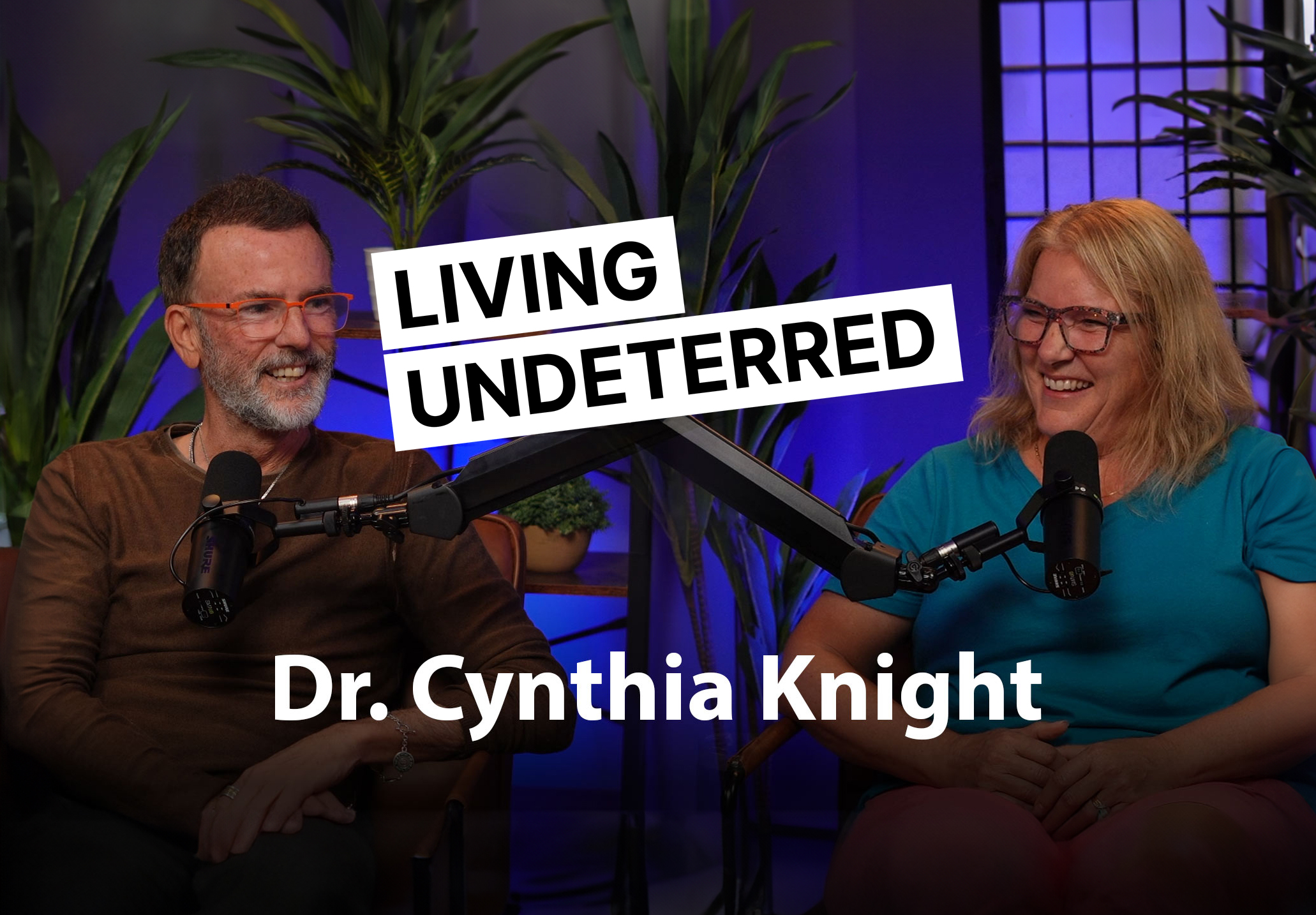
Jeffrey Johnston
January 15, 2026
•
7 min read

In this powerful episode of The Living Undeterred Podcast, host Jeff Johnston sits down with Dr. Cynthia Knight, founder of Iowa Choice Charter School, for a deeply personal and eye-opening conversation about education, equity, and second chances.After years in special education and with a daughter who struggled in traditional schools, Dr. Knight saw firsthand how many students fall through the cracks of the public school system. What began as a dream became a statewide innovation: an online charter school built specifically for kids who have been bullied, expelled, overwhelmed, or simply left behind.
Jeff and Dr. Knight dive into:
This episode is a must-listen for parents, educators, and advocates who believe that all kids—regardless of circumstance—deserve a chance to thrive.
Learn more or enroll: iowachoicecharterschool.org
Learn more about the Brightn app at brightn.app
Watch the full episode here:
Cynthia: I started in special ed after a weekend volunteering with a student named Bill. That weekend changed everything. But what really pushed me was my own daughter. The public school system just wasn’t kind to her. She enrolled in an alternative program, and I remember sitting there while someone quickly signed off on her paperwork and said, ‘You’re done.’ I thought—this is it? This is how we treat kids who are struggling?
That’s when I knew we could do better.
Later, I worked for the Iowa Department of Education and saw firsthand how the system handled “at-risk” students. I went to conferences, talked to kids, and listened to what they weren’t getting from school. For years I said, If Iowa ever changes their charter laws, I’m applying.
They did in 2020. So I did.
Cynthia: Before 2020, you couldn’t start a charter school unless you partnered with a public school district—and I asked five districts. Every single one said no. Why? Because I wanted to work with the kids who were struggling. And in Iowa’s school rating system, that could hurt your performance metrics. They didn’t want the risk.
But when the law changed and allowed independent applications, I applied. And we became Iowa’s first online charter school.
Cynthia: The #1 reason is bullying. Full stop. Not academic challenges—emotional survival. These kids say:
“I don’t want to walk down hallways and hear hurtful things.”
“I don’t want to be in crowded classrooms.”
“I don’t want to sit where I don’t feel safe.”
And many have just given up. They drop out. They disappear from the system. But that doesn’t mean they don’t want to learn—they just don’t feel seen or protected.
Cynthia: A charter school is still a public school—it’s free to attend, state-funded, and accredited. But it serves a specific niche. Some focus on STEM, some on the arts. Ours focuses on kids who are struggling. Many of them won’t or can’t go back to a traditional setting, whether due to anxiety, parenthood, trauma, or needing flexibility.
We offer a structure where they can thrive without sacrificing who they are or what they need.
Cynthia: Our model is flexible by design.
They log into a virtual platform we call the CharterVerse, kind of like Roblox, which helps them mentally shift into “school mode.” From there, they spend two hours in live instruction with small classes (10–15 students), plus two hours of study hall. Mentors meet with them weekly to provide executive functioning support and just ask, “How are you doing?”
We don’t fail kids. If they’re not done in six weeks, they keep going. They never have to start over.
Cynthia: We’re a competency-based school—not time-based. Public schools require seat time (90 days) to pass a course. But we move students forward when they’ve mastered something, not when a calendar says they should.
And honestly, many of these kids have been told their entire school life that they’re dumb because of test scores. We’re not interested in reinforcing that message. We show them what they can do and build from there.
Cynthia: That’s a big misconception. These kids are incredibly social—they just don’t want to be social in unsafe or hostile environments. They go to church, sports, jobs, malls, and spend time with family. They just don’t want to sit in a classroom with 30 peers when they’ve been bullied or misunderstood.
We’re also launching a new program called Code of Honor, which encourages students to give back to their community—volunteering, mentoring, and real-world engagement.
Cynthia: It’s free.
We provide laptops, internet access, everything. No tuition, no open enrollment requirements, no red tape. Rolling enrollment means families can start at any time.
We don’t want anything to stand in the way of a kid getting back on track.
Cynthia: More growth. More partnerships. More innovation. We’re seeing increased involvement from local industries who want to train students for real careers—while they’re still in school. Whether it’s welding, butchering, or OSHA certification, we connect them with practical experience now.
And it’s working. We started with 88 students. We’ve now served over 600. Some are winning Presidential Scholarships. Others are buying homes right out of high school.
Cynthia: Because every child deserves to know they’re not broken. They’re not behind. They’re just where they are. And from that place, we can help them move forward—with love, support, and the belief that they have something valuable to give.
This isn’t just a story about alternative education—it’s a call to reimagine what school can be when we lead with empathy. Dr. Knight and her team at Iowa Choice Charter School aren’t waiting for systems to change. They’re building something new—and kids are responding.
🎧 Listen to the full conversation on the Living Undeterred podcast.
Ready to take charge of your mental wellness? Try Brightn free today.
